
Robert Coleman, MD, professor in the department of Gynecologic Oncology and Reproductive Medicine, The University of Texas MD Anderson Cancer Center, discusses ongoing research with immunotherapy in ovarian cancer.

Your AI-Trained Oncology Knowledge Connection!


Robert Coleman, MD, professor in the department of Gynecologic Oncology and Reproductive Medicine, The University of Texas MD Anderson Cancer Center, discusses ongoing research with immunotherapy in ovarian cancer.
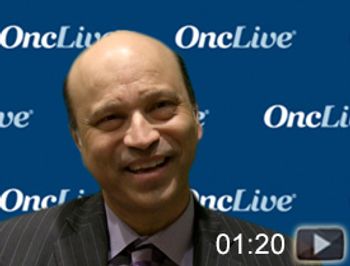
Debu Tripathy, MD, professor and chairman, Department of Breast Medical Oncology, Division of Cancer Medicine, The University of Texas MD Anderson Cancer Center, discusses frontline endocrine therapies for patients with hormone receptor (HR)-positive breast cancer.
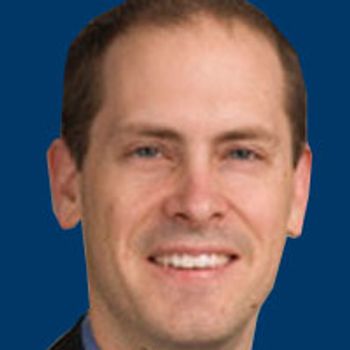
Michael J. Overman, MD, discusses the current state of immunotherapy in patients with CRC and how to optimally manage immune-related adverse events.
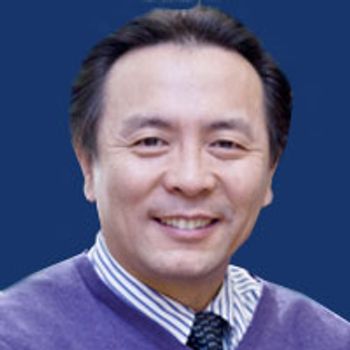
Axicabtagene ciloleucel (axi-cel; Yescarta) is being evaluated in patients with relapsed or refractory mantle cell lymphoma—a rare B-cell non-Hodgkin lymphoma that contributes 4200 new patients in the United States each year.
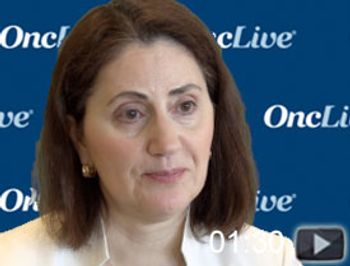
Vassiliki Papadimitrakopoulou, MD, professor, Department of Thoracic/Head and Neck Medical Oncology, The University of Texas MD Anderson Cancer Center, discusses the need for more targeted therapies in non–small cell lung cancer.
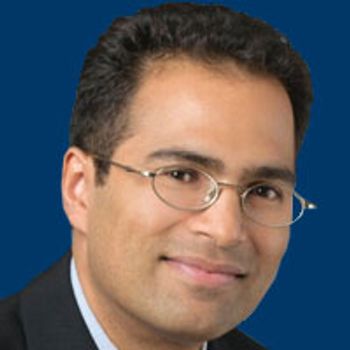
Naveen Pemmaraju, MD, discusses SL-401 and the future of treatment for patients with blastic plasmacytoid dendritic cell neoplasm.
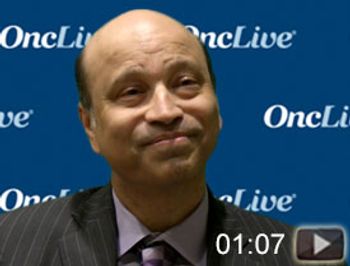
Debu Tripathy, MD, professor and chairman, Department of Breast Medical Oncology, Division of Cancer Medicine, The University of Texas MD Anderson Cancer Center, discusses the progression of biosimilars in oncology.
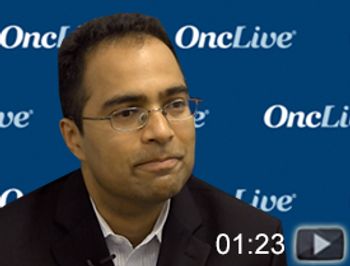
Naveen Pemmaraju, MD, Department of Leukemia, Division of Cancer Medicine, The University of Texas MD Anderson Cancer Center, discusses the trial of SL-401 in blastic plasmacytoid dendritic cell neoplasms.

Banu Arun, MD, professor in the Department of Breast Medical Oncology, Division of Cancer Medicine, The University of Texas MD Anderson Cancer Center, discusses biosimilars in the context of global cancer care.
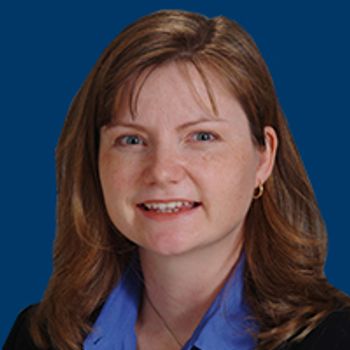
Wendy A. Woodward, MD, PhD, highlights encouraging advances and ongoing developments with radiotherapy in breast cancer.
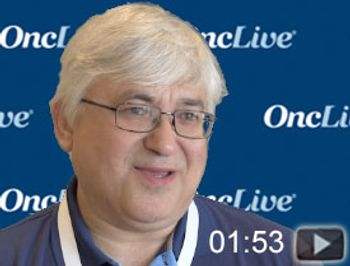
Ignacio I. Wistuba, MD, chair, Department of Translational Molecular Pathology, Division of Pathology/Medicine, The University of Texas MD Anderson Cancer Center, discusses biomarkers for immunotherapy in lung cancer.
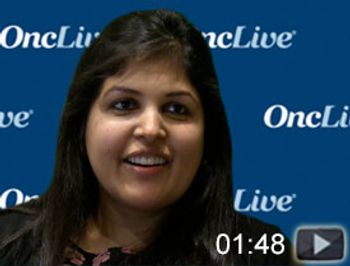
Rashmi K. Murthy, MD, assistant professor, Department of Breast Medical Oncology, Division of Cancer Medicine, The University of Texas MD Anderson Cancer Center, discusses dual HER2 blockade in HER2-positive breast cancer.
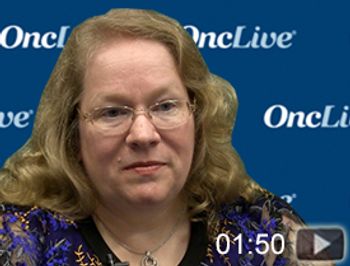
Arlene O. Siefker-Radtke, MD, professor, Department of Genitourinary Medical Oncology, Division of Cancer Medicine, The University of Texas MD Anderson Cancer Center, discusses the treatment of patients with bladder cancer who have fibroblast growth factor receptor (FGFR)-altered tumors.
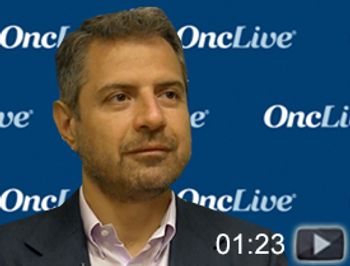
Elias Jabbour, MD, an associate professor in the Department of Leukemia at The University of Texas MD Anderson Cancer Center, discusses blinatumomab (Blincyto) in acute lymphoblastic leukemia.
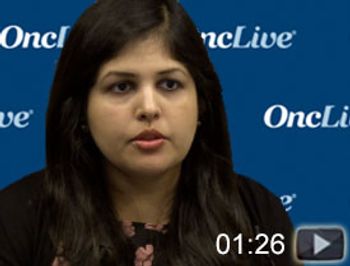
Rashmi K. Murthy, MD, assistant professor, Department of Breast Medical Oncology, Division of Cancer Medicine, The University of Texas MD Anderson Cancer Center, discusses the future of tucatinib in HER2-positive breast cancer.
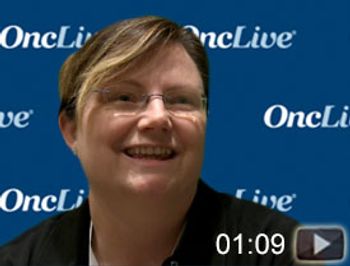
Wendy A. Woodward, MD, PhD, professor and chief, Clinical Breast Radiotherapy Service, Department of Radiation Oncology, The University of Texas MD Anderson Cancer Center, discusses proton radiotherapy in breast cancer.
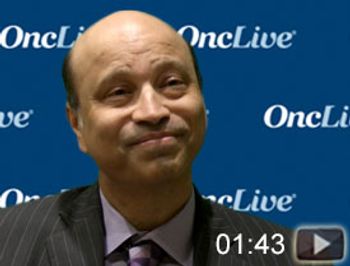
Debu Tripathy, MD, professor and chairman, Department of Breast Medical Oncology, Division of Cancer Medicine, The University of Texas MD Anderson Cancer Center, discusses the importance of biosimilars in oncology.
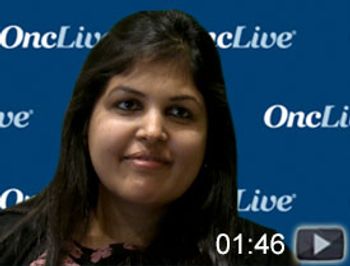
Rashmi K. Murthy, MD, assistant professor, Department of Breast Medical Oncology, Division of Cancer Medicine, The University of Texas MD Anderson Cancer Center, discusses caveats of the PERSEPHONE trial.
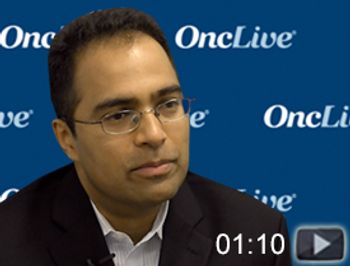
Naveen Pemmaraju, MD, Department of Leukemia, Division of Cancer Medicine, The University of Texas MD Anderson Cancer Center, discusses the use of SL-401 in patients with blastic plasmacytoid dendritic cell neoplasms.
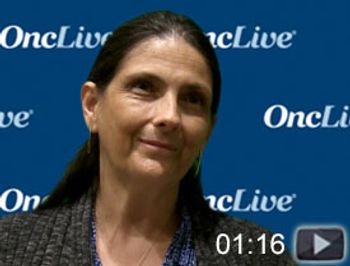
Banu Arun, MD, professor in the Department of Breast Medical Oncology, Division of Cancer Medicine and Department of Clinical Cancer Prevention, Division of OVP, Cancer Prevention and Population Sciences, The University of Texas MD Anderson Cancer Center, discusses ongoing research in triple-negative breast cancer (TNBC).
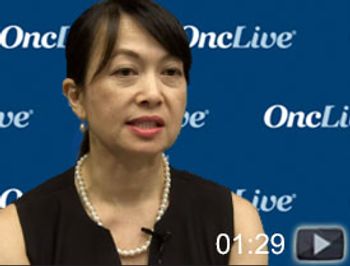
Cathy Eng, MD, professor of gastrointestinal medical oncology, The University of Texas MD Anderson Cancer Center, discusses why the negative results of the PRODIGE 7 trial are beneficial moving forward.
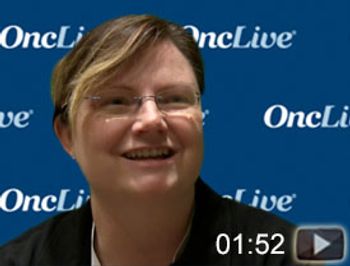
Wendy A. Woodward, MD, PhD, professor and chief, Clinical Breast Radiotherapy Service, Department of Radiation Oncology, The University of Texas MD Anderson Cancer Center, discusses radiotherapy in breast cancer.
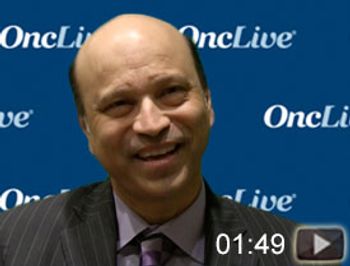
Debu Tripathy, MD, professor and chairman, Department of Breast Medical Oncology, Division of Cancer Medicine, The University of Texas MD Anderson Cancer Center, discusses the management of hormone-receptor (HR)-positive early-stage breast cancer.
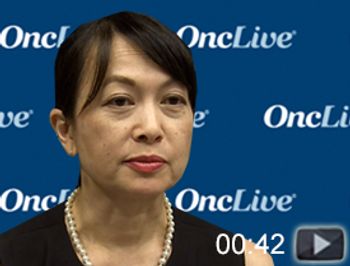
Cathy Eng, MD, professor of gastrointestinal medical oncology, The University of Texas MD Anderson Cancer Center, discusses the FDA approval of nivolumab (Opdivo) plus ipilimumab (Yervoy) in patients with microsatellite instability-high (MSI-H) or mismatch repair deficient (dMMR) metastatic colorectal cancer (mCRC) following progression on a fluoropyrimidine, oxaliplatin, and irinotecan.
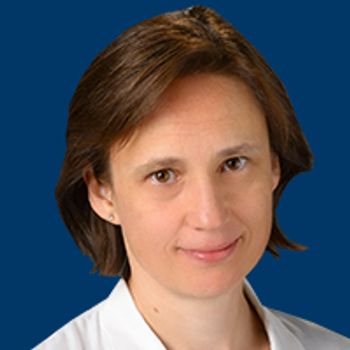
Investigators are hopeful that idasanutlin, a novel small molecule that targets the MDM2 protein, can improve the efficacy of chemotherapy in patients with relapsed/refractory acute myeloid leukemia.
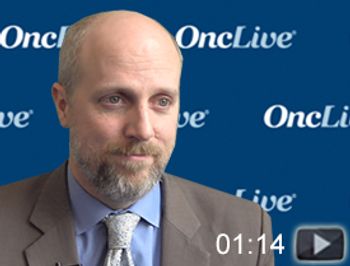
Scott Kopetz, MD, PhD, FACP, associate professor, Department of Gastrointestinal Medical Oncology, Division of Cancer Medicine, The University of Texas MD Anderson Cancer Center, discusses the importance of molecular testing in colorectal cancer.
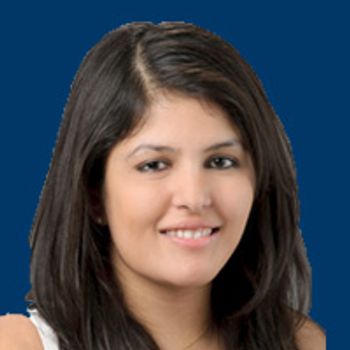
Tucatinib used in combination with capecitabine, trastuzumab, or both agents showed promising antitumor activity in heavily pretreated women with HER2-positive breast cancer with or without brain metastases.

The CD19-targeted CAR T-cell product axicabtagene ciloleucel (axi-cel; Yescarta) is currently being investigated in patients with relapsed/refractory MCL in the ongoing ZUMA-2 trial.
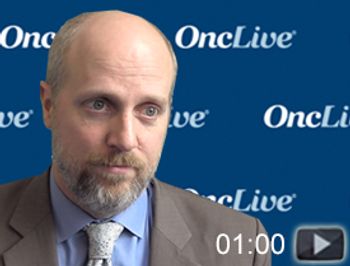
Scott Kopetz, MD, PhD, FACP, associate professor, Department of Gastrointestinal Medical Oncology, Division of Cancer Medicine, The University of Texas MD Anderson Cancer Center, discusses triplet therapy for patients with BRAF-mutant colorectal cancer
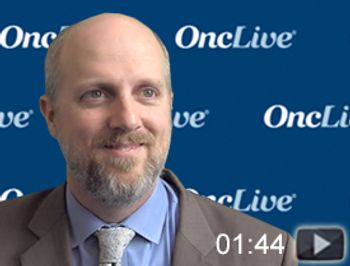
Scott Kopetz, MD, PhD, FACP, associate professor, Department of Gastrointestinal Medical Oncology, Division of Cancer Medicine, The University of Texas MD Anderson Cancer Center, discusses the treatment of patients with BRAF-mutant colorectal cancer.